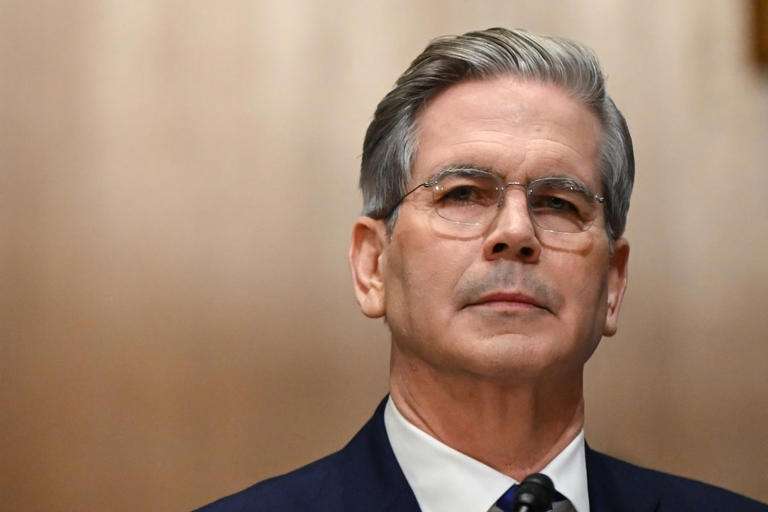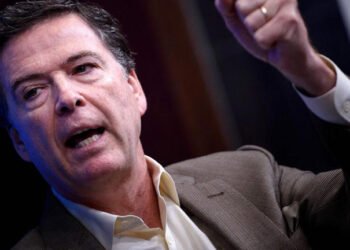US Treasury Secretary, Scott Bessent has said that the US and China had “substantially de-escalated” after a series of tit-for-tat trade moves that threatened to strain relations and trigger a new trade war between Washington and Beijing.
The comments came after Trump, angered by China’s October 9 decision to expand export controls on key rare earth minerals, announced an additional 100 percent tariff on Chinese goods set to take effect on November 1.
Speaking to a news agency, Bessent stated that there have since been “substantial communications” between the two sides, with additional staff-level meetings expected this week.
“The relationship, despite this announcement last week, is good. Lines of communication have reopened, so we’ll see where it goes.”
Scott Bessent
He added that the “100 percent tariff does not have to happen” if the two sides work out their disagreements in negotiations.
Also, Bessent stated that he expected a planned meeting between Trump and Xi at the Asia-Pacific Economic Cooperation (APEC) forum in South Korea in late October to go ahead.
“He [Trump] will be meeting with [Communist] Party Chair Xi in Korea. I believe that meeting will still be on.”
Scott Bessent
He stressed that Trump and Xi have “a very good relationship” and suggested that Beijing’s latest policy on rare earth elements could have originated from a lower-level official rather than Xi himself.
Despite the apparent rapprochement, Bessent slammed China’s new export controls as provocative and said that the US pushed back aggressively.
“They have pointed a bazooka at the supply chains and the industrial base of the entire free world. And, you know, we’re not going to have it. China is a command and control economy. They are neither going to command [nor] control us.”
Scott Bessent
US In Touch With Allies

He added that the US has been in touch with allies and expects support from the Europeans, India and allies in Asia.
He noted that the US also expects to get substantial support for its stance from Europe, India and democracies in Asia.
“I believe that China is open to discussion on this. And if they’re not, we have substantial levers on our own … side that we can pull.”
Scott Bessent
In the midst of tensions earlier this year, the United States imposed 12 countermeasures on China that were “highly” effective, ranging from natural resources used in plastic production to jet engines and parts, Bessent said.
The Treasury Chief also hinted at the possible expulsion of the hundreds of thousands of Chinese students now in the United States and other possible actions in areas of software, minerals and financial services if China does not back down. “We have plenty of straight, brute-force countermeasures that we can pull,” Bessent said.
China has defended its new export curbs, which require foreign companies to get Beijing’s approval to export products containing Chinese rare earth elements, and to disclose their intended use.
China’s Ministry of Commerce said the heightened restrictions were introduced in response to a series of US measures since the two countries’ trade talks held in Madrid, Spain last month, including Washington’s decision to blacklist Chinese firms and impose port fees on China-linked ships.
Beijing accused Washington of “provocative and damaging” actions and called Trump’s tariff threat a “typical example of double standards.”
China has a near monopoly over rare earth minerals, critical for the manufacture of technology such as electric cars, smartphones, semiconductors and weapons.
The US is a major consumer of Chinese rare earths, which are crucial for the US defence industry.
READ ALSO: GES Urges Parents to Accept Placements and Prepare Wards





















